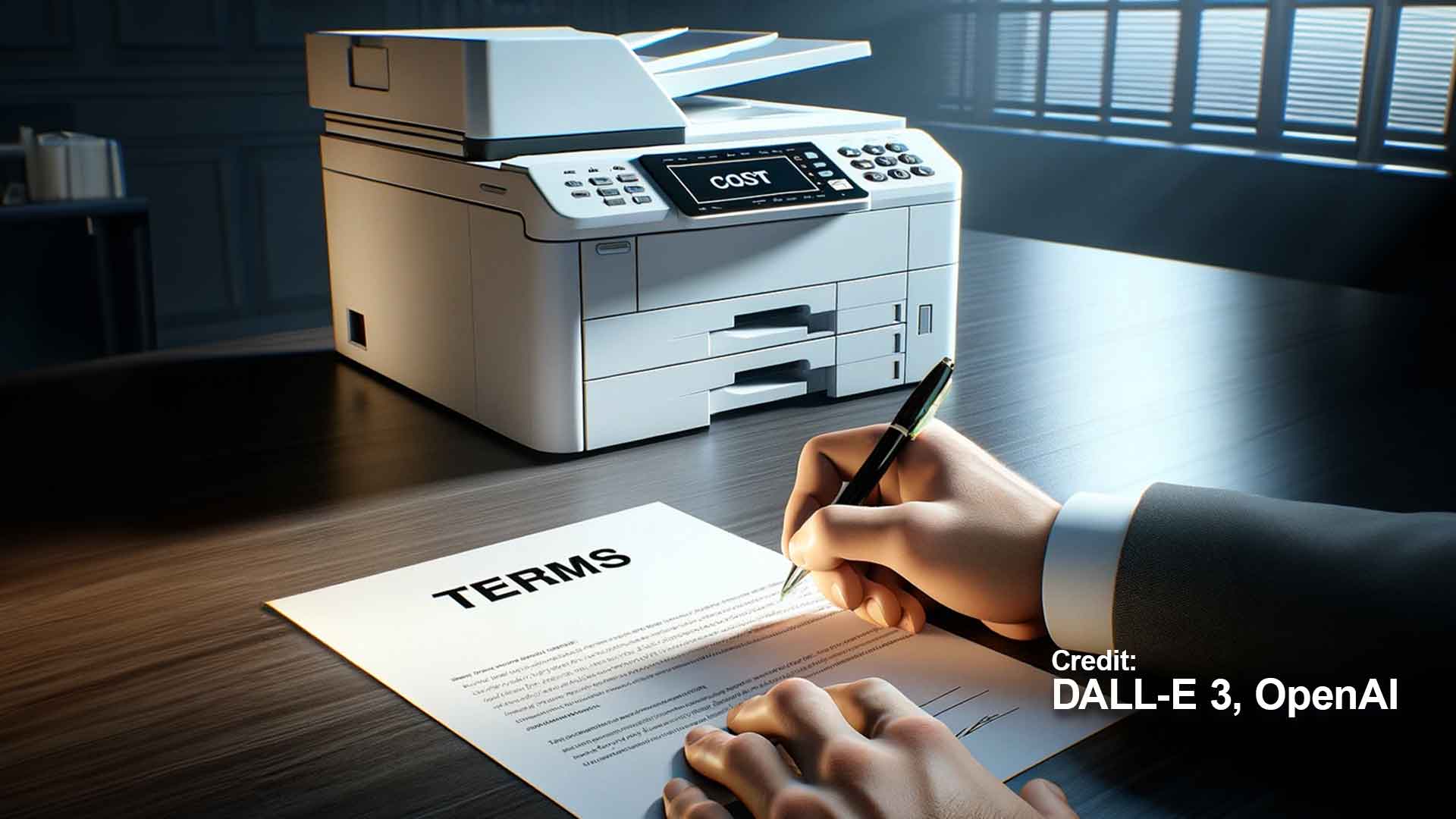

Navigating the world of copier leases can be a complex endeavor, especially with the multitude of options available in today's market. A copier is a critical piece of office equipment whose functionality directly impacts your business operations.
Whether you're a startup, a growing business, or an established corporation, understanding the nuances of copier lease terms, types, and costs is essential for making an informed decision that aligns with your operational needs and financial strategy.
This guide dives deeper into these aspects to aid in your decision-making process so you can feel confident in what and how you spend money at your business.
Lease terms are a fundamental component when entering a copier lease agreement. These terms determine the duration you're committed to paying for the copy machine, affecting not only your monthly costs but also your flexibility in upgrading or changing equipment as your business needs evolve.
The standard lease durations are 12, 24, 36, 48, and 60 months, each serving different business strategies and financial plans.

Short-term leases (12 to 24 months) offer the highest level of flexibility, ideal for businesses in a transitional phase or those experiencing rapid technological changes in their industry.
However, this flexibility comes at a cost: typically, higher monthly payments due to the shorter amortization period.
Long-term leases (36 to 60 months) are typically more cost-effective on a monthly basis. They are suited for businesses with stable needs and a clear understanding of their long-term requirements.
Opting for a longer lease can also lock in current prices, potentially saving costs as market prices increase.
When evaluating lease types more closely, it's paramount to understand the financial implications and strategic benefits of Fair Market Value (FMV) and $1 Out leases.
FMV leases, synonymous with operating leases, are particularly attractive for businesses prioritizing flexibility and access to the latest technology.
Under an FMV lease, you're essentially renting the equipment with an option to buy at the end of the lease term at its fair market value, upgrade to newer technology, or simply return it.
This lease type is often the best route for companies that expect to evolve rapidly, as it allows them to adapt their equipment to changing technology without a significant upfront investment.
Advantages of FMV Leases:
Lower Monthly Payments: By not committing to the purchase of the copier, monthly payments are typically lower, easing cash flow.
Tax Benefits: Payments under an FMV lease may be fully deductible as operating expenses (consult with a tax advisor or your CFO for specific advice).
Upgrade Flexibility: Easily upgrade to newer technology at the end of your lease term, ensuring your office is always equipped with the latest features.
$1 Out leases, or capital leases, cater to businesses planning for long-term use and ownership of the copier.
Unlike FMV leases, the $1 Out lease is designed so that you own the copier at the end of the lease term for a nominal fee of $1, plus any applicable taxes.
This approach benefits companies that rely on a copier for their core operations and prefer to maximize their investment over many years.
Benefits of $1 Out Leases:
Ownership: At the end of the lease, you own the equipment outright, eliminating lease payments and potentially lowering long-term costs.
Predictable Budgeting: Since the goal is ownership, businesses can plan their budgets without worrying about future costs related to their copier needs.
Tax Advantages: Although different from FMV leases, $1 Out leases may offer benefits such as depreciation deductions (again, consult with a tax advisor).
Your business strategy and financial considerations should inform the choice between short and long-term leases.
A shorter term might mean higher monthly payments, but it offers the flexibility to adjust to business changes quickly. A longer-term lowers monthly payments but requires a longer commitment.
When selecting a lease term, consider your business's growth projections, technological advancements in the industry, and financial strategy.
Aligning the lease term with your business cycle and technology refresh plan can optimize both operational efficiency and budget allocation.
Understanding how lease costs are affected by term length and type is vital. It's common for businesses to seek longer terms for lower monthly payments, but changing to a shorter term can cause payment shock due to higher monthly costs.
When adjusting lease terms, the financial dynamics shift.
A shorter lease term increases the monthly payment but may decrease the total cost of ownership if opting for a $1 Out lease.
Conversely, extending the lease term reduces monthly payments but can increase total costs under an FMV lease due to the extended period of paying for the equipment.

Selecting the right copier lease requires a careful analysis of your business's current and future needs, financial objectives, and the strategic value of the equipment to your operations.
Whether you're leaning towards the flexibility and low monthly cost of an FMV lease or the long-term value and ownership offered by a $1 Out lease, aligning your choice with your broader business strategy is crucial.
Remember, informed decisions today pave the way for tomorrow's operational efficiency and financial stability.
By thoroughly understanding the implications of lease terms, types, and costs, you're better equipped to choose a copier lease that meets your immediate needs and supports your business's growth and evolution.
For additional insights and guidance on selecting the best copier for your business, make sure to read our article, Finding The Best Office Copier For Your Business Needs.
A true southerner from Atlanta, Georgia, Marissa has always had a strong passion for writing and storytelling. She moved out west in 2018 where she became an expert on all things business technology-related as the Content Producer at AIS. Coupled with her knowledge of SEO best practices, she's been integral in catapulting AIS to the digital forefront of the industry. In her free time, she enjoys sipping wine and hanging out with her rescue-dog, WIllow. Basically, she loves wine and dogs, but not whiny dogs.